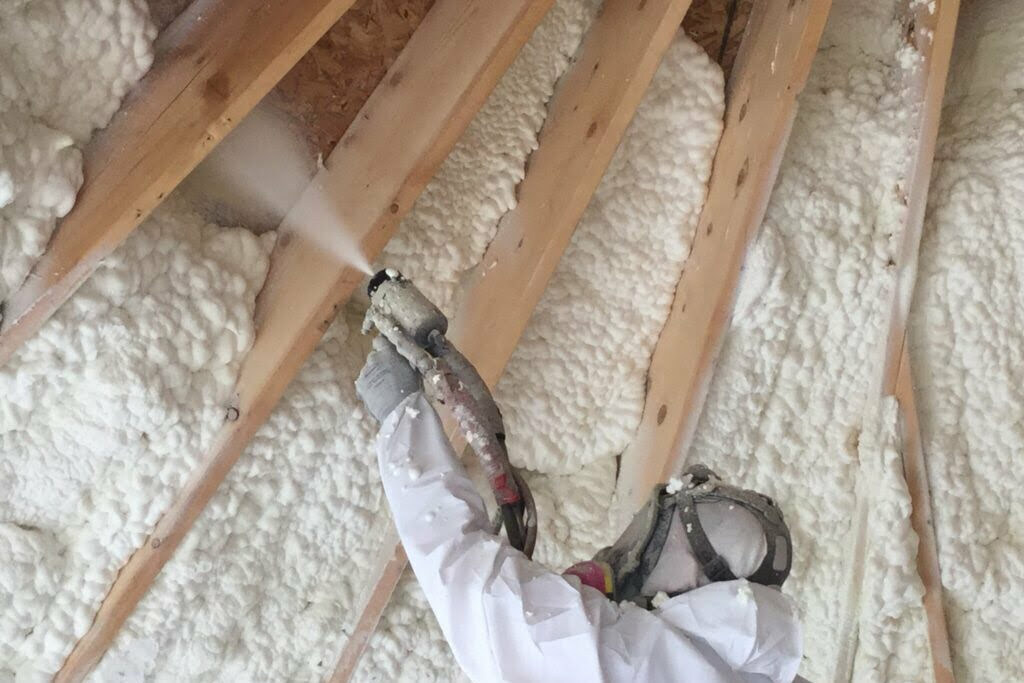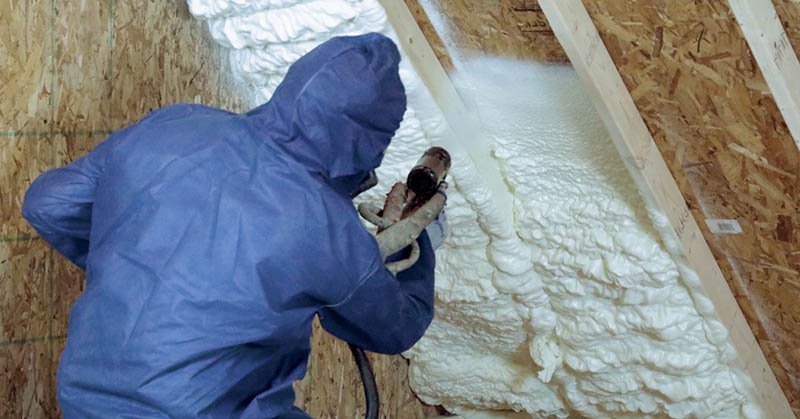In recent years, spray foam insulation has become a popular choice for homeowners and construction companies looking to optimize energy efficiency. But beyond its insulation capabilities, this material boasts other potential advantages, one of which is water resistance. But how waterproof is spray foam insulation, exactly? What properties make it resistant to moisture, and how does this influence its overall performance and benefits?
Understanding Spray Foam Insulation
Spray foam is a type of insulation that expands upon application, creating a continuous air barrier. It comes in two primary forms: open-cell and closed-cell spray foam Insulation. Open-cell is soft and flexible while closed-cell spray foam is rigid and resistant to water and heat.
How Does Spray Foam Insulation Work?
Spray foam fills gaps, crevices, and spaces, adhering to surfaces and creating a continuous, seamless layer of insulation. The foam expands in seconds and then begins to cure and harden.
The Waterproof Properties of Spray Foam Insulation
Details on the Waterproof Capabilities of Spray Foam Insulation
The short answer is no. The foam used in homes is not waterproof. It is, however, water resistant. If water comes in from a leak, spray foam is not the permanent fix.
How Spray Foam Insulation Resists Moisture and Prevents Damage
Spray foam insulation’s waterproof properties come from its unique composition. Closed-cell spray foam provides a water-resistant barrier protecting the building from moisture damage. By preventing moisture intrusion, it also inhibits mold growth providing a safer and healthier environment.
How This Insulation Acts as a Barrier Against Water
Upon application, the closed-cell spray foam expands and hardens, creating a sealed barrier between the inside of the home and the external environment. This barrier is highly resistant to water penetration, making closed-cell spray the preferred choice for waterproofing.
Other Benefits and Considerations of Spray Foam Insulation
Energy Efficiency and Cost Benefits
Spray foam insulation improves energy efficiency by sealing air leaks which can cause high heating and cooling costs. This can result in significant savings over time as you don’t need to work your HVAC system in hot and cold seasons as much to maintain consistent temperatures.
Long-term Savings Due to Energy Efficiency
While the initial cost of spray foam insulation may be higher than other insulation types, the longer-term cost benefits are significant. The energy savings over the years can recoup the initial investment and lead to continued savings throughout the life of the building.
Safety Measures and Installation Considerations
Installing spray foam insulation requires specific safety measures. Professional installation is recommended due to the chemicals involved in the process. Additionally, appropriate ventilation is needed during installation to avoid potential health risks.
Spray Foam’s Waterproof Properties and Other Benefits
Spray foam insulation’s waterproof qualities, sealing abilities, and energy efficiency make it a sound investment for both residential and commercial properties. It’s especially beneficial in regions with extreme weather conditions due to its weather-resistant properties and thermal performance.
When considering spray foam insulation, it is critical to weigh all factors, including cost, environmental impact, and potential health risks. Consider seeking advice from insulation professionals to choose the best type of insulation for your specific needs and to ensure proper installation.
Look to Cincinnati RetroFoam for Your Insulation Needs
Let the experts at Cincinnati RetroFoam make your home more energy-efficient and comfortable with their professional spray foam insulation services. Since 2015, we’ve served residents with outstanding insulation services not found elsewhere. Contact us today for your free quote to get started.


